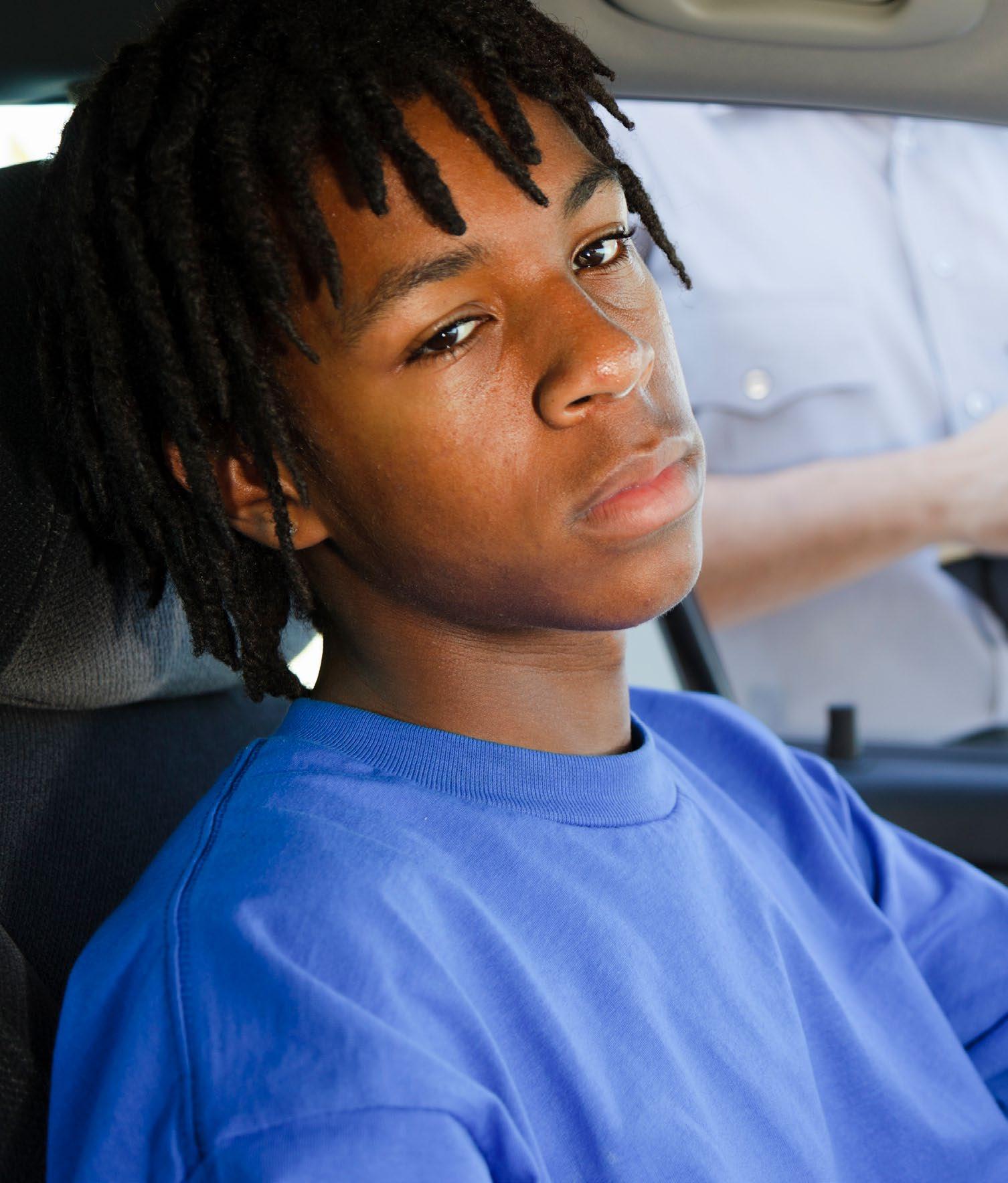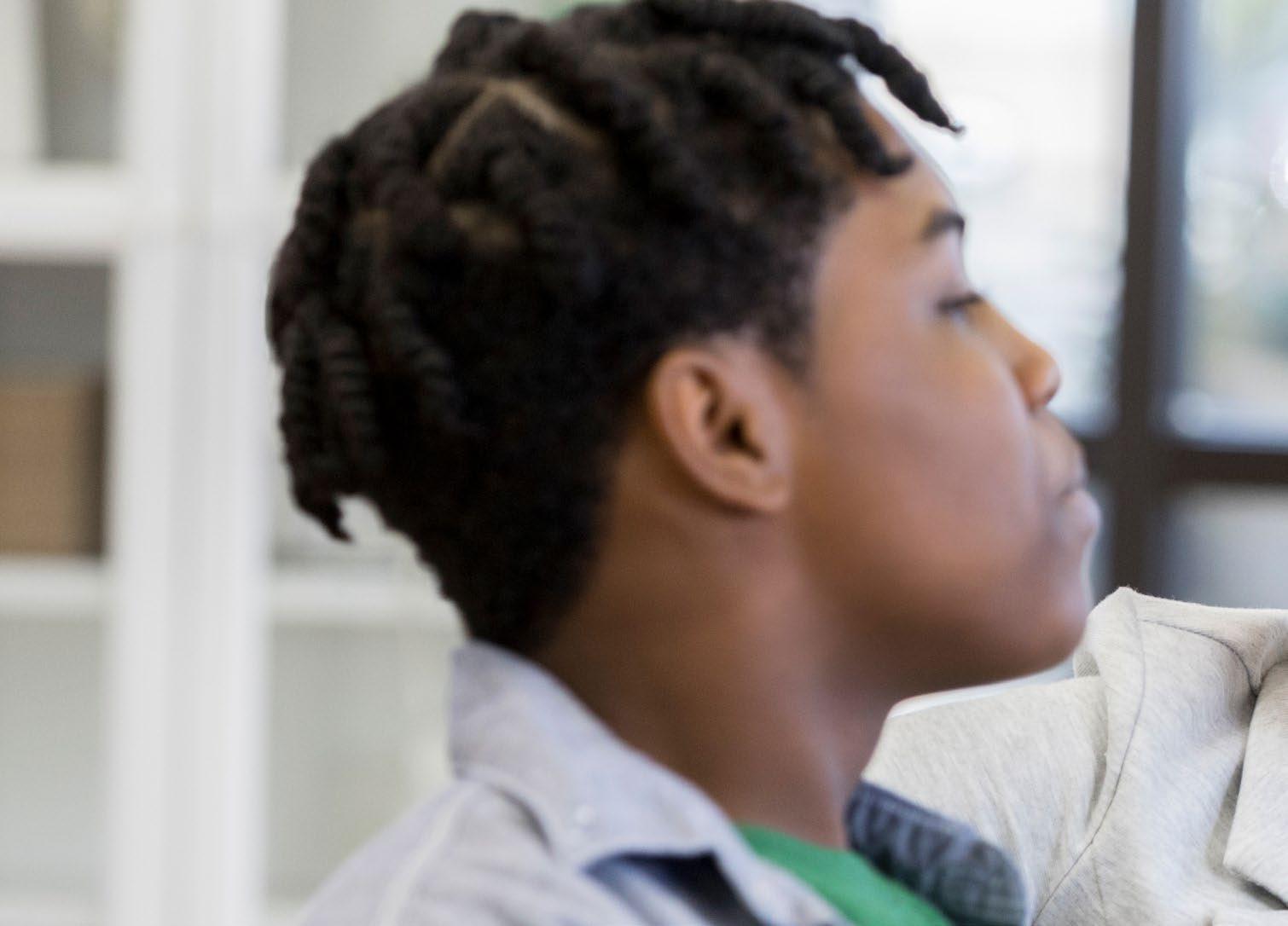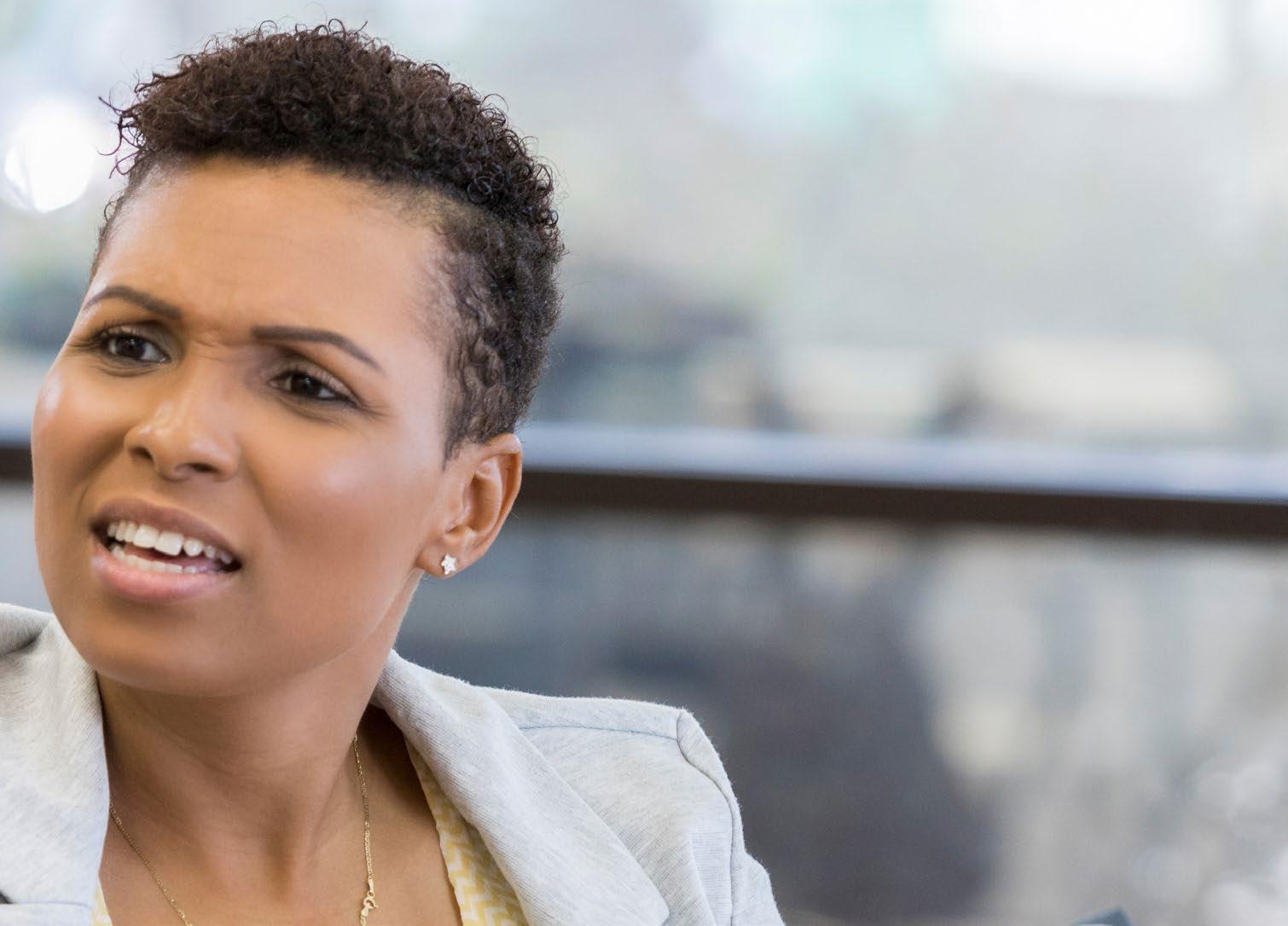
3 minute read
A MOM’S PERSPECTIVE
Raising Black Children in a White Society
By Sonia Huggins
Advertisement
Sonia Huggins is a former teacher who recently gave up a distinguished career. This article is the first in a series.
We had the talk with our teenage son after he was almost arrested in front of our house just as we arrived home with our two young daughters. He was accused of trying to break into our house because he forgot the alarm code. This was 23 years ago and he was living with us but not full-time.
Kindly white neighbours asked if he needed help talking to the police as they pulled up to the house. He said no – he could explain the situation because this was his home. Well, that didn’t work.
With the house alarm blaring, the police immediately asked for his ID. He refused. Before they packed him into the police van, he tried to explain, showing them the pictures of himself that were in the house, but that didn’t work. He continued to refuse to provide ID and that really, really didn’t work. It was while he was arguing with them that we arrived home.
THE TALK
We hadn’t had the talk before. Now we had to have the talk.
Our son didn’t feel that he had to prove who he was in front of his own home. His word was his bond. The police did not agree. He was devastated and refused to budge. Only after his father spoke with police and got them to release his son did the situation calm down. Or so we thought.
As he stormed into the house, his two preteen sisters looking on in fear and confusion, crying the whole time, I began to talk to the police. I tried to explain the rage of a young black man coming into his adulthood never having had a run-in with the police.

I explained that he felt emasculated and diminished because of the way they had roughly treated him and that this was damaging to his psyche. I tried to tell the officers that being treated aggressively by the police and not being listened to were triggers that would escalate the situation. One of the officers claimed he had a black girlfriend in his efforts to deny any hint of racial motivation. It really wasn’t relevant. I continued talking to the officers just the same, in hopes that our conversation would increase their sensitivity and reduce friction in their next encounter with a person of colour. Meanwhile, our son was consumed with rage. Despite speaking with his father at length, he was inconsolable.
As the police left our property with apologies, I knew our work was just beginning. The need to have “The Talk” was upon us.
WHAT IS “THE TALK?”
It’s the talk that black families have had with their children for generations. Each generation’s talk has been slightly different. In my time as a young parent,

it was about being twice as good in order to receive half the credit as your white counterparts and about blending in and not drawing attention to yourself lest you be perceived as angry, radical or, God forbid, equal.
Regardless of the generations, one subject has always been included in the talk and that is how to behave with the police. Every black family, from our great-great-grandparents’ time up until today, has a story about discrimination, unfair treatment, or excessive violence at the hands of the police due to the colour of their skin.
Raising black children in white society has always meant providing them with positive role models and trying to give them the tools to handle racial adversity in a society that carries no reflection of themselves.









